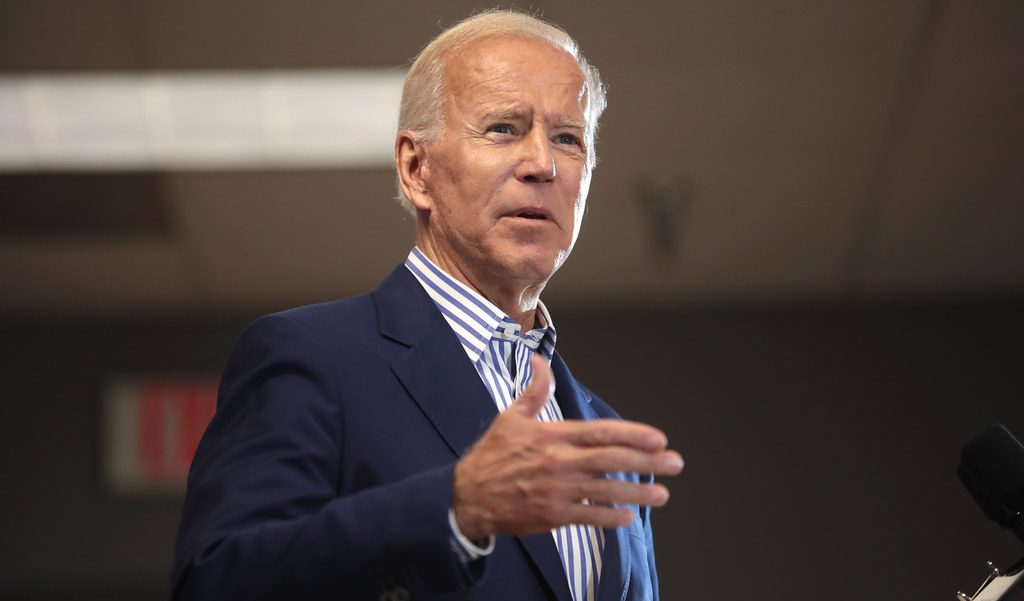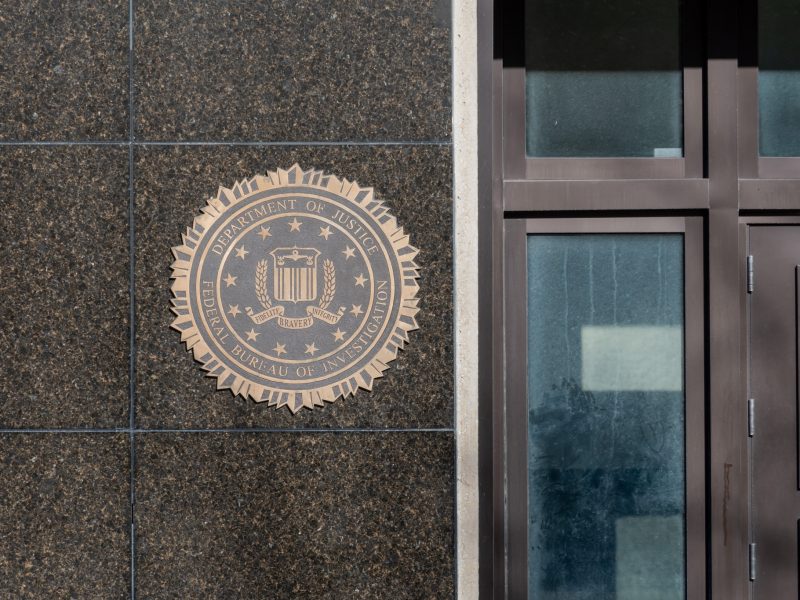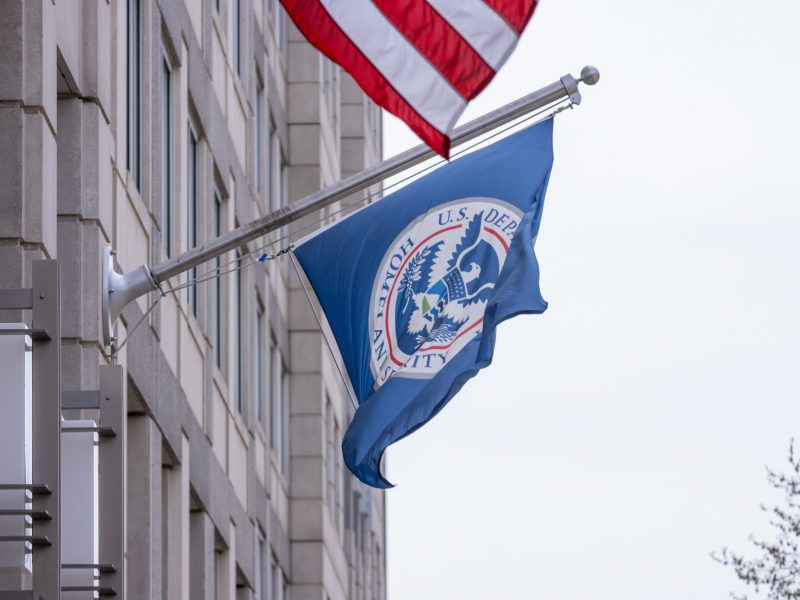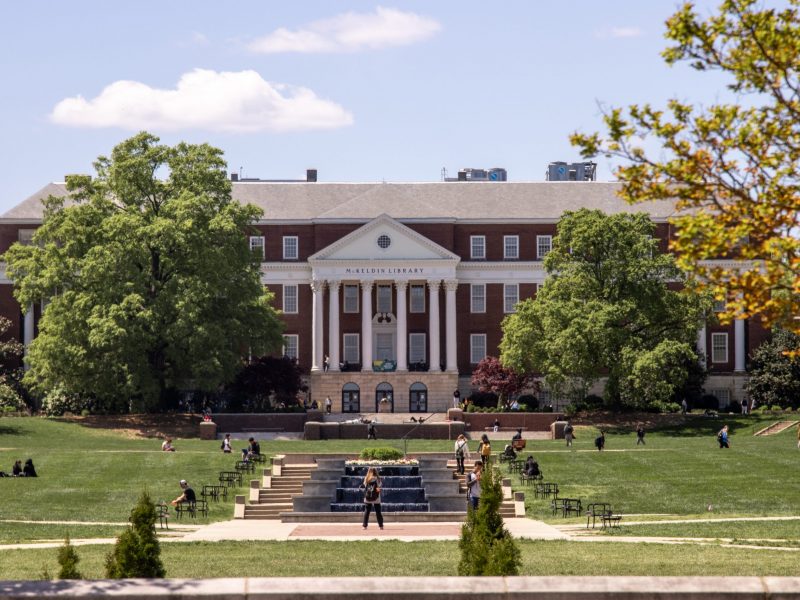Para leer este artículo en español, haga clic aquí.
Former Vice President Joe Biden, who ran on a promise to restore the soul of the nation, will become the 46th president of the United States after garnering 284 of the needed 270 electoral votes, according to The Associated Press.
He will serve alongside Sen. Kamala Harris (D-Ca.). Harris will be the first woman, the first Black American and the first South Asian American to hold the office.
The win — following a seemingly never-ending election night that seeped into the following morning and ultimately extended to Saturday — was marred by President Donald Trump’s repeated false assertions of election fraud and claims he had won.
Trump’s falsehoods came in a barrage of tweets throughout the week and a pair of White House briefings, the most recent of which featured him making baseless claims that “illegal votes” and widespread fraud resulted in the election being stolen from him.
Biden’s messaging contrasted the president’s. He repeatedly assured supporters all votes would be counted and, by tallies’ end, he’d emerge as president. He was right.
It’s clear that when the count is finished, we believe we will be the winners. pic.twitter.com/qVk0igZlrF
— Joe Biden (@JoeBiden) November 5, 2020
But despite Biden’s win, his fight may be far from over.
Georgia’s secretary of state announced Friday the state will head to a recount, and other states may follow suit, depending on margins of victory and whether one is requested, per The Washington Post.
Recounts in three states following the 2016 election had no effect on the outcome.
The Trump campaign has filed lawsuits in states including Nevada, Michigan, Pennsylvania and Georgia, and it has announced it will ask for a recount in Wisconsin. Technically, legal battles over vote counts don’t have to be resolved until Dec. 14, when electors will meet to cast their state’s electoral votes. The following weeks may resemble the 2000 election, which eventually ended after the Supreme Court halted a recount in Florida, granting George H.W. Bush the presidency.
That election only ended after Democratic nominee Al Gore accepted the court’s ruling and conceded defeat. Trump didn’t commit to accepting the results of a lost election beforehand, and with continued assertions that the election is fraudulent, some experts fear he may never concede.
According to The Atlantic’s Bartin Gellman, there are no procedures or precedents to guide America through an election in which one candidate refuses to ever accept defeat.
[“Just want it over with”: UMD students stress as election winner remains unknown]
Biden will assume the presidency amid what many have called the nation’s most pressing crisis since World War II: a pandemic that has infected 9.8 million Americans and killed more than 236,000, including more than 4,000 Marylanders.
Biden’s inauguration will be Jan. 20, and he’ll be faced with a reeling economy that experienced slowing recovery and millions still unemployed in September, according to The Washington Post.
During his campaign, Biden pledged he would support a federal mask mandate, implement a national contact tracing workforce and expand universal testing to combat the virus that President Donald Trump has been criticized for downplaying and mishandling.
Biden has also promised to rejoin the Paris agreement and to pursue charges in the Supreme Court in response to the rushed appointment of conservative justice Amy Coney Barrett.
Unlike Trump’s numerous rallies, which often lacked social distancing and masks, Biden held drive-in rallies in historically blue and battleground states. Toward the end of the trail he ventured into traditional Republican strongholds such as Georgia, a sign of the momentum his campaign had gained.
Biden campaigned as a man of morals, more fit to unite a divided country and lead it out of the pandemic. His in-person rallies were relatively infrequent compared to Trump’s, but he outspent the 45th president on television advertisements in key battleground states for much of the campaign season.His tumultuous race against Trump reached a head in the first presidential debate, which was rife with insults from both sides. He was able to separate himself from Trump’s brash style and appealed to demographics who voted for Trump in 2016 but have since felt alienated by his divisive rhetoric and handling of the pandemic, according to The Times.
[One for the history books: Local voters cast ballots at UMD on Election Day]



